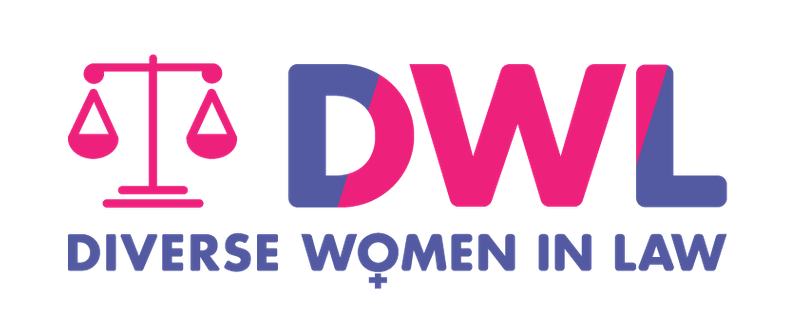Policy & Strategy
Developing DWL's strategic projects through research and analysis, identifying growth opportunities for DWL, developing policy initiatives to raise awareness on the structural barriers faced by Diverse Women through data collection, research and reporting.
Report on the Impacts of Online Engagement on Diverse Women Law Students
In consultation with the University of Sydney Business School, in 2020 DWL undertook a survey of Diverse Women law students in Australia to understand their experiences following restrictions on in-person interactions and events. We received a total of 177 responses and are excited to share our findings with you!
Key Findings
No camera, no worries: There is no universal experience when it comes to “presenting” oneself during Online Engagements.
Hybrid online and offline: As the world is slowly returning to more in-person events, consider offering “hybrid” events, whereby attendees are given the option of attending either in-person or online.
Safe space for discussion: Whether online or in-person, a safe space should be created for Diverse Women law students to speak about their backgrounds: that is, their lived experience as Diverse Women; concerns they may have in relation to entering the legal profession and any personal challenges they may be experiencing.
The report has demonstrated that there is no ‘one size fits all approach’ to facilitating Online Engagements with Diverse Women law students during the COVID-19 pandemic. As the world begins to return to in-person events, providing options for both online and in-person attendance will ultimately increase accessibility to, and engagement with, events for all involved.
Led by Cecilia Ngu, DWL Policy & Research Director
Contributors: Rhea Bhargava, Casey Zhu, Gopika Aryad
DWL’s submission on the Australian Government’s
‘Job-Ready Graduates Package’
On Monday 17 August, Diverse Women in Law (DWL) filed its very first policy submission in response to the Department of Education, Skills and Employment’s (DESE) public consultation on the draft legislation to implement the Australian Government’s ‘Job-Ready Graduates Package’.
DWL's primary submission is that the proposed reforms can have significant implications for social justice, policy formation and leadership as it could compromise the pipeline of diverse talent entering into the legal profession and disproportionately affect the representation of diverse individuals at the decision-making tables.
In DWL's view, the proposed reforms:
convey the impression that certain degrees, including law, have lower social utility than STEM courses;
result in an increased financial burden for law and humanities degrees which could give rise to deterring prospective students (in particular low socio-economic status applicants, many of whom are likely to comprise diverse women) to pursue such degrees thereby deepening existing structural barriers;
have a further disenfranchising effect on prospective diverse female women law students and those who may have otherwise pursued career paths that are oriented around social justice, and assisting other diverse women in the community;
do not account for legal qualification as an enabler of leaders in public and private sector institutions alike, including its ability to elevate diverse women into positions of responsibility. This can stifle the development of an intersectional approach towards leadership positions;
in imposing financial deterrents to potential applicants, undermine the development of critical skills that are cultivated in the course of studying law degrees including analytical and interpersonal skills; and
fail to recognise the value and utility of law graduates in assisting the Australian community with navigating the societal upheaval that will result from issues such as technological disruption of various industry sectors and climate change.
Our Recommendations
In its submission, DWL included a number of recommendations and drew upon case studies exploring the views of certain DWL members.
DWL's key recommendations include:
1. to undertake reviews into whether graduates of STEM related disciplines provide higher public returns or contributions compared to law and humanities graduates and whether, as a result of the proposed reforms, graduates from STEM related disciplines will be more "job-ready" when compared to law and humanities graduates.
2. to undertake reviews into whether critical functions of the legal profession, including legal aid organisations and community legal centres, will receive the necessary funding and support to fill human resources gaps arising from the proposed funding reforms.
3. to ensure that support and investment in higher education is accessible specifically for low-socioeconomic status applicants studying law and humanities degrees.
4. that comprehensive policy, prioritising increased transparency and accountability, should underpin these reforms, including the need to explore what it means to be ‘job-ready’ and the fluidity of the average Australian’s career, the numerous jobs they may hold over their lifetime, and the increasing emphasis on transferable skills rather than hard qualifications.
5. implementation of greater transitional protections during a period of economic recovery from the COVID-19 Pandemic.
Beyond the utility of the practical legal knowledge gained from law degrees, the unique ability to devise innovative solutions to issues of justice and accessibility in the law which are made available to those with legal qualifications is vital to ensuring representative leadership in Australia.
— Diverse Women in Law
Thank you to our contributors
DWL is extremely grateful to our talented team of volunteers who contributed to our policy submission: Cecilia Fonseca, Sanjay Alapakkam, Keerthi Ravi, Dania Ibrahim, Jessica Ortner, Jazmine Elmolla, Olivia Mueller, Joy Chen, Alison Chen, May Yang, Ali Gunning, Vanessa Li and Cecilia Ngu
We want your feedback!
DWL is keen to receive your feedback on our policy submission and contribution towards policy issues that impact diverse women more broadly. If you are a diverse woman, wanting to study law or studying law, or identify as an ally of our cause, please feel free to contact us to have your say at dwlpolicy@gmail.com.


